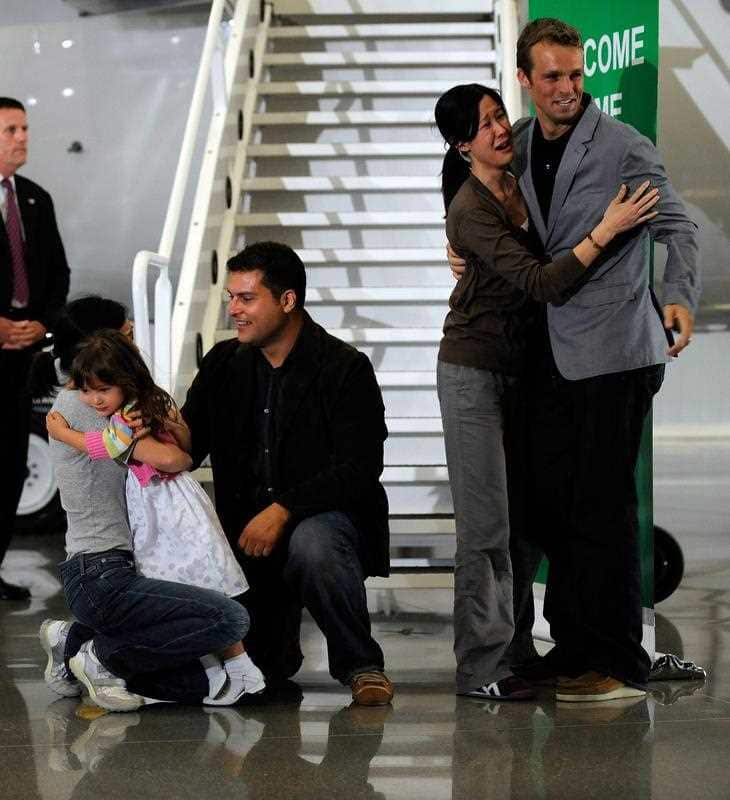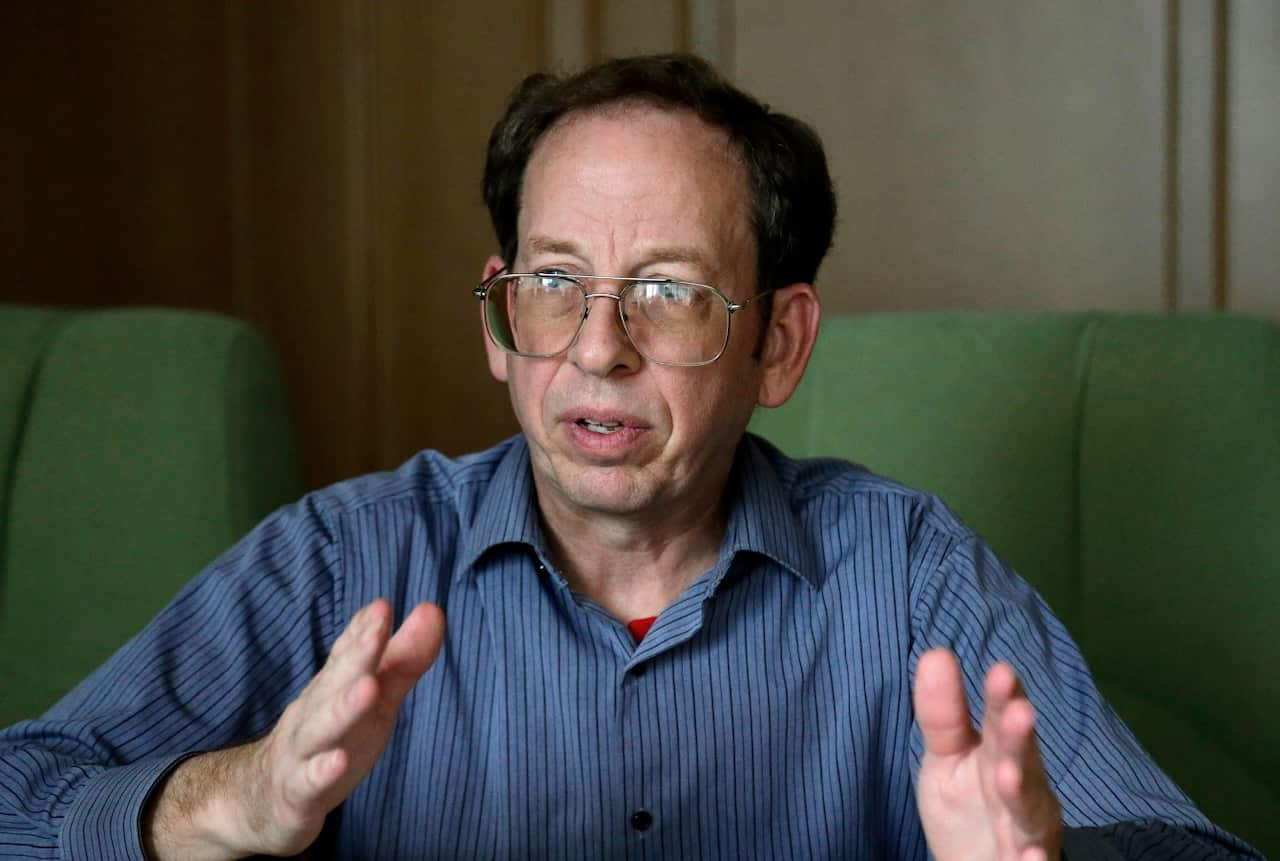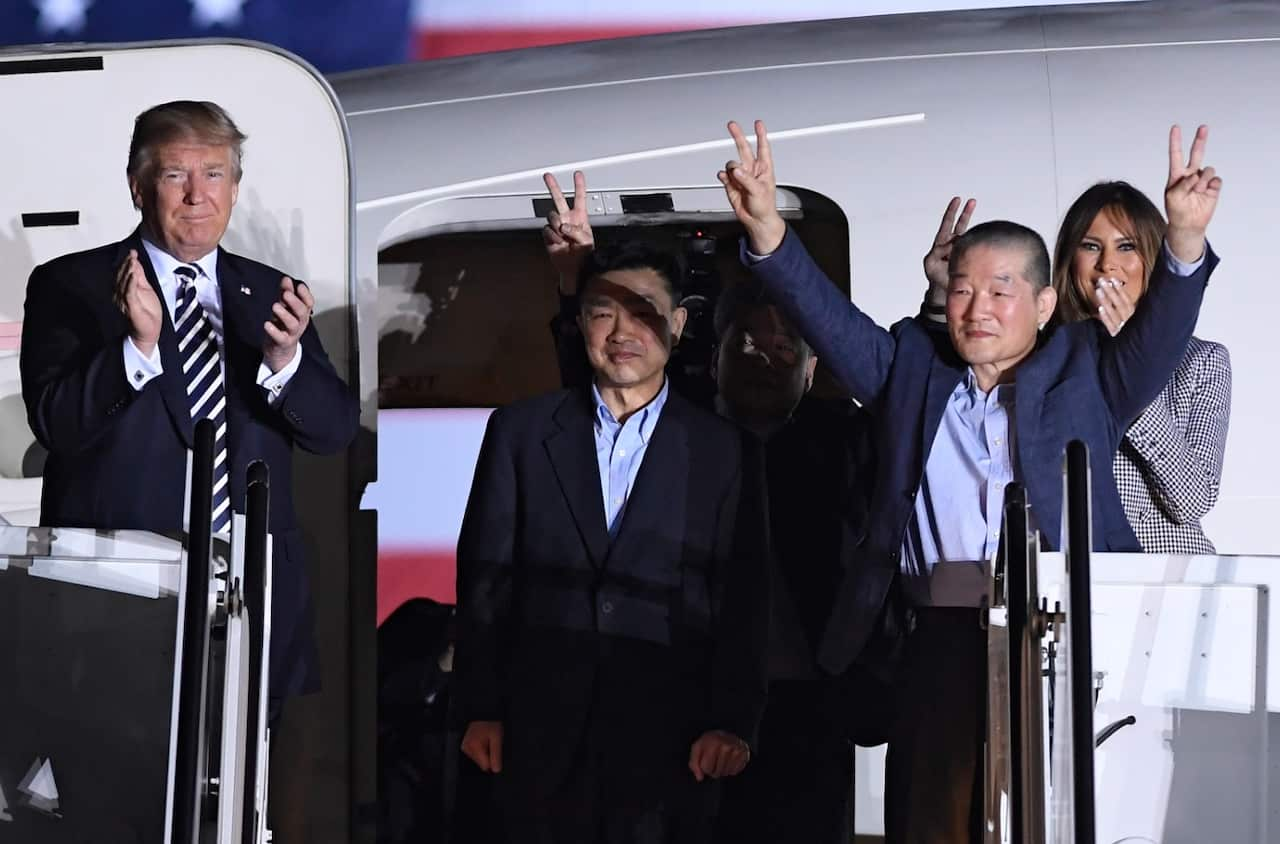For Euna Lee, certain moments of her return from months of confinement in North Korea in the summer of 2009 were marked by what she recalls as “utter joy.” The tearful reunion with her husband and four-year-old daughter; savouring a meal at a favourite local restaurant in Los Angeles.
But as time went on, Lee said, she found herself overwhelmed by sadness and anxiety. Guilt-ridden over the time she had missed, she volunteered at her daughter’s elementary school as she resumed working as a journalist.
Gratitude she felt for the work done to free her, she said, morphed into a sense of obligation to suppress any ill will toward others — even in minor interactions, like when someone cut in front of her in line at the grocery store.
“For a long time,” said Lee, who now works in Washington as an executive producer at Voice of America, “I felt like I was living someone else’s life.”

As the three American prisoners released by North Korea this week savoured their freedom after many months in captivity, they joined a group of Americans, 16 in total, who have been detained and released by the regime since 1990, according to the State Department.
Many — including Lee, who had been accused of illegally crossing into North Korea — had followed every development in the negotiations for the three hostages, and rejoiced at the news.
Two of the newly released Americans, Tony Kim and Kim Hak-song, were accused by the regime of “hostile acts,” and the third, Kim Dong-chul, was accused of spying and had been sentenced to hard labour.
But Lee and others who have been detained also know that after the initial euphoria wears off, coming home from brutal internment is not without its own struggles. In interviews, some of them, and their loved ones, recalled the challenges of resuming their lives — including family tensions, financial woes, pangs of anxiety and a sense of disorientation.
“I know what they’ve just gone through, that loneliness, the isolation, the big black question mark on the horizon,” said Jeffrey Fowle, who was imprisoned in North Korea for four months in 2014. “It can be rough to pick up the pieces.”

A devoted Christian who was arrested after intentionally leaving a Korean-English Bible in a bar, Fowle found that his sister was torn between feeling relieved and angry with him once he was back home in Miamisburg, Ohio. It was not so much that he had taken an unacceptable risk, but that he had not confided in her about his plan to do so.
“She felt she was deceived,” he recalled.
He also found himself grappling with the cumulative effects of small reality distortions imposed by his captors. Since he had been allowed to write letters to his family, he thought his sister had ignored his request to send him puzzles from the local paper to keep his mind occupied in the 23 hours a day he spent alone. It turned out several of his letters had never reached his family.
For Fowle and his family, life seemed to fall back into place fairly quickly, he said, but knowing that has not been the case for others has weighed on him. His release came weeks before that of two other American prisoners in North Korea, Kenneth Bae and Matthew Todd Miller, who he knew had been imprisoned for longer and in worse conditions. Fowle had spent part of his confinement writing long pages of answers to questions that he was told would be used at his trial.
“I still wonder why I never had that trial,” he said, “and the others did.”
Aijalon M. Gomes, an American teacher arrested in the spring of 2010 after crossing into North Korea from China, was forced to perform difficult labour and wore bands around his wrists to try to alleviate the pain, according to a memoir recounting his ordeal. He was freed that summer after intervention by former President Jimmy Carter, but last year was found burned to death in San Diego. The county medical examiner ruled Gomes’ death a suicide. In a 2015 interview with a British news outlet, Gomes said that anxiety issues had made him “mostly a recluse.”
“I have had more occasions of hopelessness in my return than I ever had in the DPRK,” Gomes had written in the foreword to his book, using the abbreviation for the official name of North Korea.
Eddie Jun Yong-su, a Christian missionary who was imprisoned in the fall of 2010, was released as his health was failing in the spring of the next year. Having lost perhaps 50 pounds while in prison, it was painful for him to sit for even short periods of time, his daughter Christina Jun recalled. In the end, the family purchased a blow up cushion for the house.
But Jun, who now lives in Seoul, South Korea, said other aspects of his adjustment were harder.
“In my case, I had intense anger toward the NK authorities for their unjust actions,” he wrote in a message on the social media app KakaoTalk. “I continued to feel like a victim, and I often got angry or felt condemnation attached to other people’s actions. It became very difficult in my daily life.”
He also felt guilty, he said, because a family business had gone south while he was away, leaving him and his wife, Sara Jun, without the funds for retirement.

It did not help that Jun was also reluctant to ask for help. Sara Jun said her husband was so different that she wanted to leave him.
“I had been waiting for him to come home safely and it didn’t matter whether we lost everything,” she wrote in a KakaoTalk message. But all he could think about “was what he had lost.”
As the prisoners freed this week undergo medical care and make their way back into the world, they may notice, as did Laura Ling, an American journalist who had been detained with Lee in 2009, that their speech is slower.
“I think that’s because I hadn’t spoken in such a long time,” said Ling, who now lives in California where she continues to work as a journalist. “I had spoken to my interrogator, but I hadn’t really used the English language to any regular extent.”
But they may also find unexpected means of support. Lee, for one, said she took heart in helping to launch a letter-writing campaign for Bae, who was imprisoned after she was released. After nearly a decade, she said this week, “I think I can say that I am very stabilised.”
It also took several years, the Juns said, for Jun to largely recover. He credits his faith and counselling.
But another aspect helped, too, his daughter Janet Jun said. Eddie Jun was moved by learning that other Americans knew of and cared about his plight.
“When people I had just met would find out who my dad was and say, ‘We’ve been following that story,’ I think that comforted my dad greatly,” Janet Jun said. “It’s not that he wants to be famous, it’s just like ‘Wow, someone was thinking about me when I was in that place and feeling the most abandoned.'”

